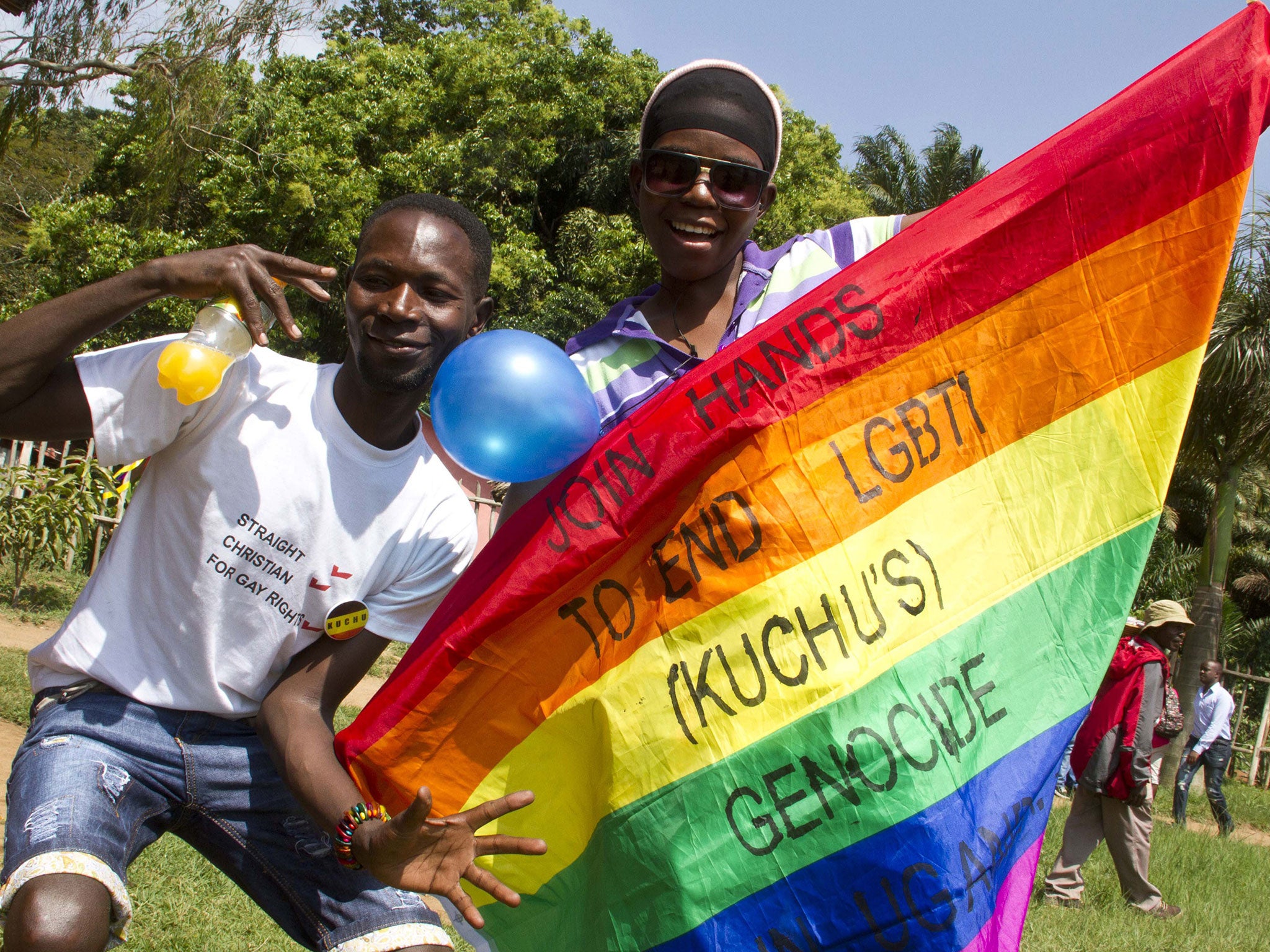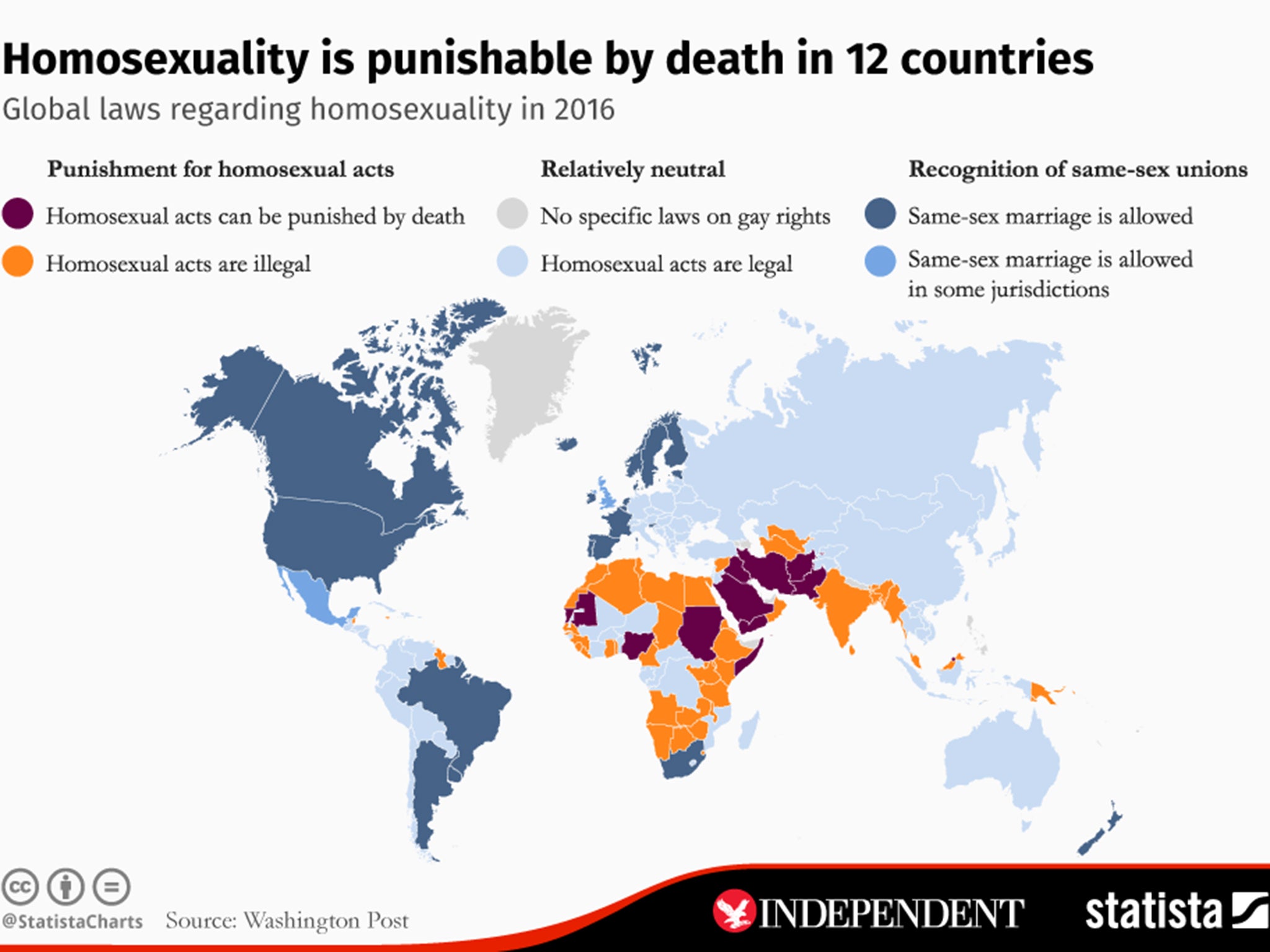Homosexuality is just as common in Uganda as other countries where it isn’t illegal
The study found 6-8 per cent of men and 10-16 per cent of women in Uganda had been sexually active with another man or woman

Homosexuality is as common in Uganda as it is in countries where it isn't illegal, a study has found.
A survey asking nearly 3,000 Ugandan students a number of questions on sexuality, physical and mental health found one in three had been in love with a person of the same sex.
Homosexuality is illegal in Uganda and carries the possibility of life imprisonment for those found guilty of homosexual acts.

The study found 6-8 per cent of men and 10-16 per cent of women had been sexually active with another man or woman.
"We were not surprised by the results," said Anette Agardh, Associate Professor in Global Health at Lund University, "as the numbers are consistent with the situation in most other countries in the world.
"The real figures could actually be even higher. Although the survey was anonymous, the intense propaganda against homosexuality in Uganda may have intimidated some from providing honest answers."
The study, published in the journal PLOS ONE, also found homosexual experiences are associated with several health risks, including poor mental health and being the victim of sexual coercion or violence.
They were also associated with engaging in risky sexual behaviour and drug use.
Ms Agardh hopes her study will lead to an increased prioritisation of health services for homosexual people in Uganda.
She said: "This is hardly the case today, as strong prejudice against homosexuality exists in large parts of Ugandan society.
"In the absence of facts and knowledge about human sexuality, myths tend to proliferate, for example, that sex between two men not involve a risk for HIV, and that a homosexual woman can be 'cured' by so-called 'corrective rape'".
Join our commenting forum
Join thought-provoking conversations, follow other Independent readers and see their replies
Comments